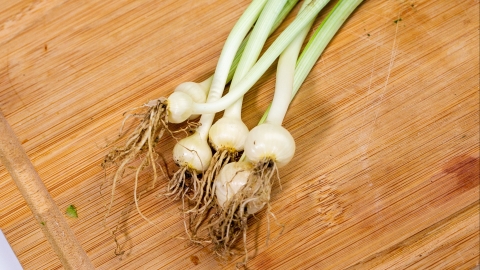Is wild scallion a type of food that may trigger or exacerbate certain illnesses?
Generally speaking, whether wild chives are considered "trigger foods" (fa wu) should be determined based on the individual's constitution and health condition. Detailed analysis is as follows:
Wild chives have a certain degree of pungency and contain essential oils, allyl sulfides, and other components. Individuals with sensitive constitutions may experience immune reactions after consumption, leading to allergic symptoms such as skin itching and swelling. For individuals with skin conditions such as eczema, urticaria, and psoriasis, consuming wild chives may exacerbate skin inflammation, causing recurrence or worsening of the condition. Additionally, for individuals with respiratory diseases such as allergic rhinitis and asthma, the pungent odor and components of wild chives might trigger allergic respiratory reactions, aggravating symptoms like nasal congestion, runny nose, coughing, and shortness of breath. In these cases, wild chives are considered "trigger foods" and may negatively affect health.

However, for most healthy individuals with normal constitutions, moderate consumption of wild chives generally does not cause adverse reactions. Wild chives are rich in vitamin C, carotene, calcium, iron, and other nutrients, offering benefits such as stimulating appetite and aiding digestion. In daily diets, using wild chives as a seasoning in small amounts—for example, in stir-frying, making soups, or preparing cold dishes—can enhance flavor and provide health benefits without harm, as long as they are not consumed in excess. In such cases, wild chives are not considered "trigger foods."
Therefore, whether wild chives are classified as "trigger foods" cannot be generalized; it depends on the individual's specific constitution and health status. It is recommended to adjust dietary habits according to one's own situation. Individuals with chronic diseases or special constitutions should consult a traditional Chinese medicine practitioner or nutritionist to assess individual risks. Fully cooking wild chives may reduce their irritancy.










